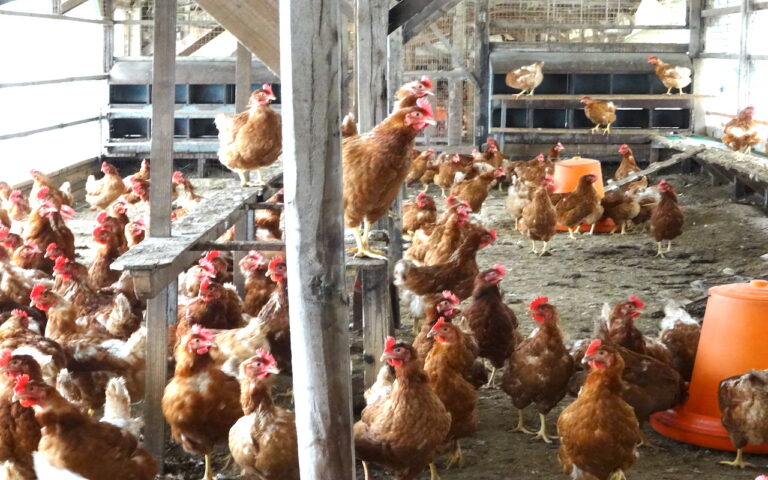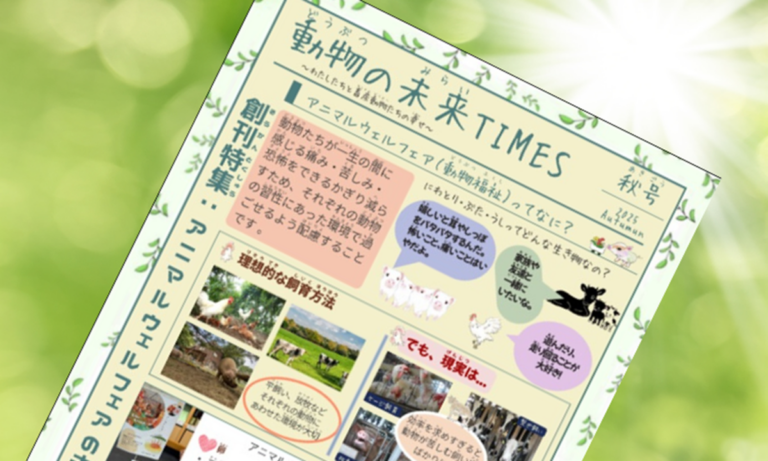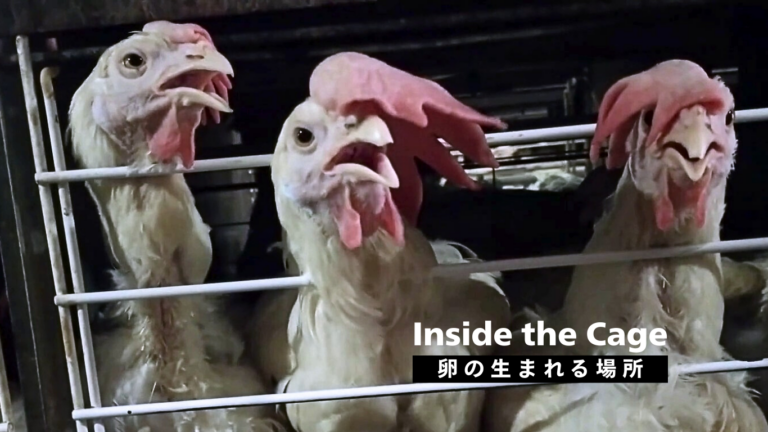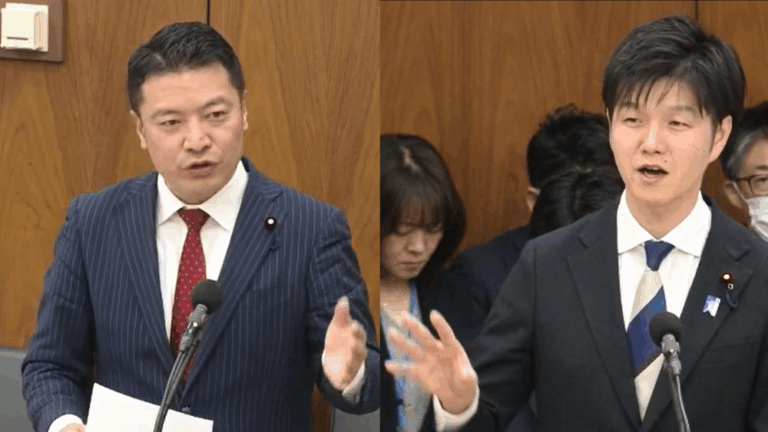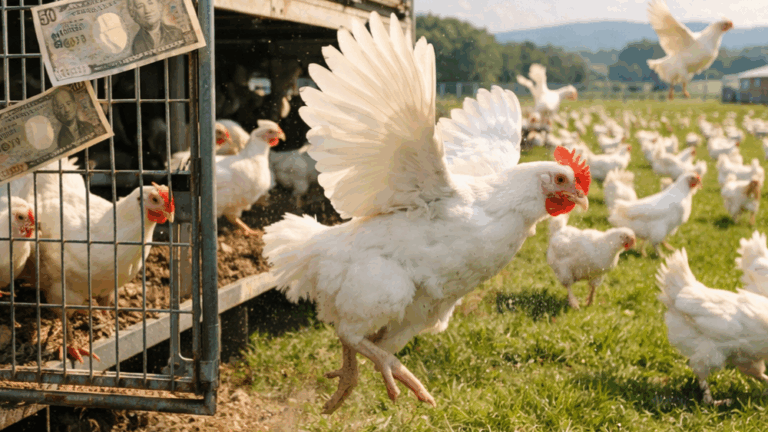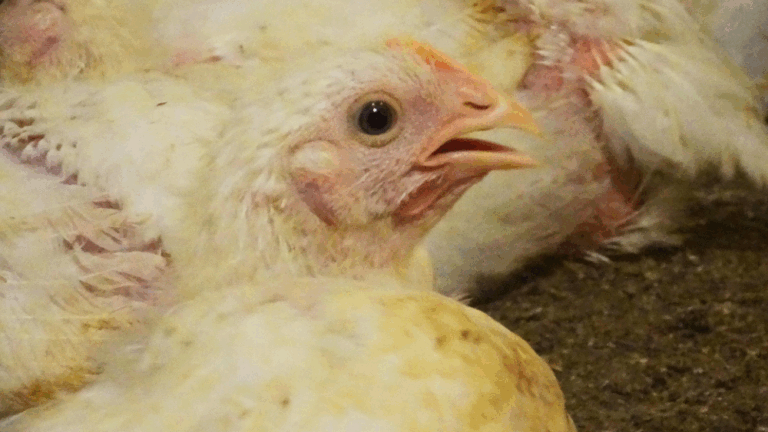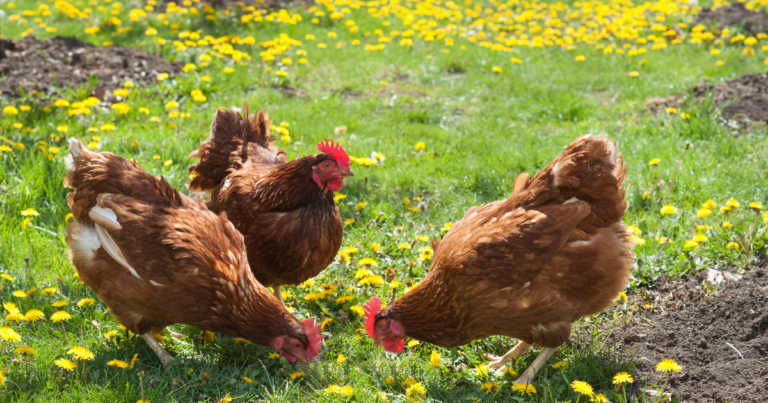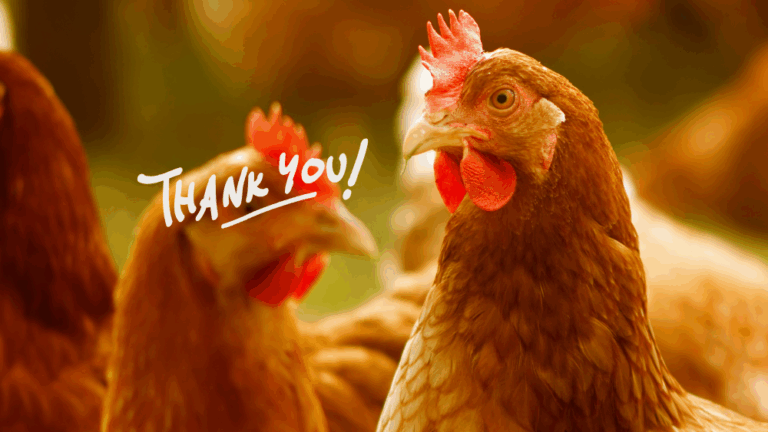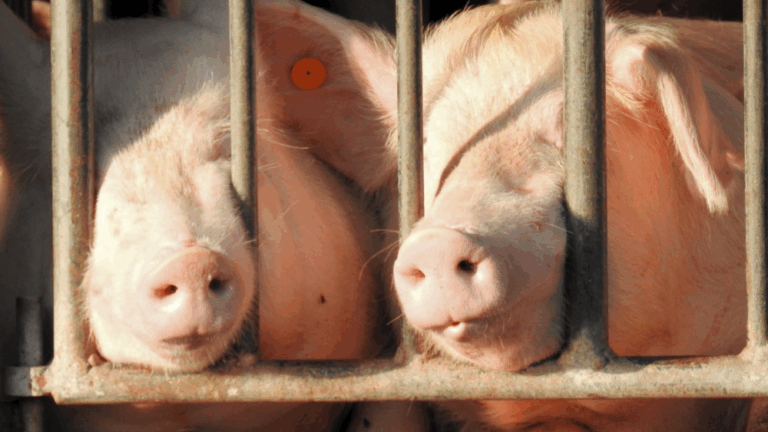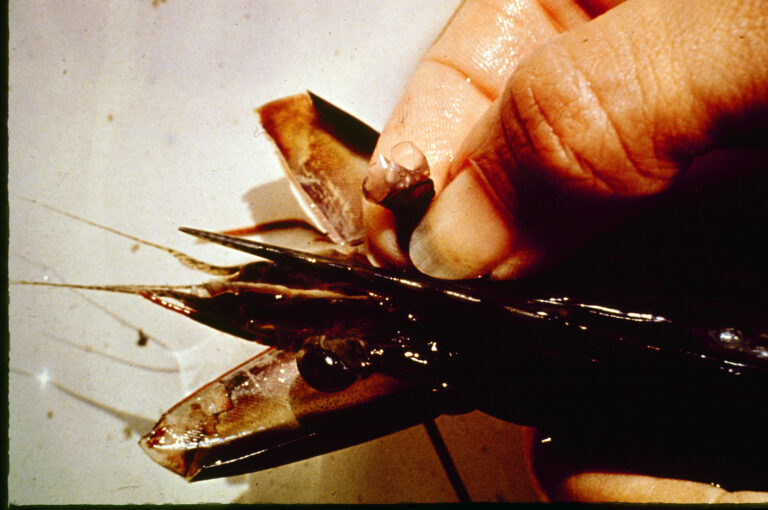In response to an inquiry from Animal Rights Center Japan, Misono farm in Komatsucho City, Tokushima, responded that all the eggs they use are already cage free and that they would support the cage-free declaration.
They serve baked sweets using cage-free eggs, rice, and fruits.
The owner said,
We only have 5 chickens per tsubo (3.3 m2), and they live freely. I think there are about 15 in normal cage-free rearing. In the end they become meat, so I want them to live freely and lay eggs in good moods while they are alive. Cage rearing doesn’t treat chickens as living beings; they are packed in cages, with each bird having an area about the size of a B5 paper (176mm×250mm); they don’t get sunlight, and they’re like machines that lay eggs. Our chickens can bathe in the sand and there’s no smell of chicken manure at all, so people who come to our tours are surprised. Caged poultry farms smell, right? Chickens are like humans after all; they smell when they are sick. Their feed is strange, the way they’re kept is strange, and they seem to go crazy from the stress building up. Even with bird flu, they’re disinfected too much and it gets sterile, so they become even less resistant even though they’re already sick, and catch it. Broilers, too, should be the most energetic during the first two months after birth, but they are so tattered it’s no surprise they get bird flu. Salmonella, too, the eggs are disinfected too much in washing, so the cuticle layers disappear and they become susceptible. In Europe, the welfare of such animals is properly protected. Some people in Japan prevented higher animal welfare standard with bribes, and even at the Tokyo Olympics, they could not prepare cage-free eggs for the athletes.
The owner was surprisingly knowledgeable, talking politely about the issues of poor animal welfare in Japan. Wished all poultry farms in Japan reared with respect for the freedom of chickens like this one.
He seemed confident in his chicken rearing, saying, “I once had actress Aya Sugimoto praise me for rearing chickens according to animal welfare.”
He kindly agreed to declare cage free.
What is cage rearing?
In cage rearing, which is the common rearing method for eggs in Japan, chickens are placed in cages and are overcrowded in order to prioritize productivity.
As a result, chickens are susceptible to illness due to lack of exercise, and drugs are used to prevent the spread of illness.
In Japan, over 90% of the farms use battery cage rearing.
It’s misleading to say that that’s healthy, and it’s definitely not natural.
Caged chickens 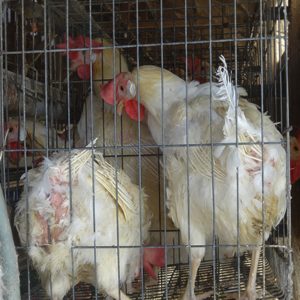
On the other hand, there do exist a few cage-free egg farms, which allow chickens to roam.
Cage-free rearing (not the featured farm, another cage-free farm.)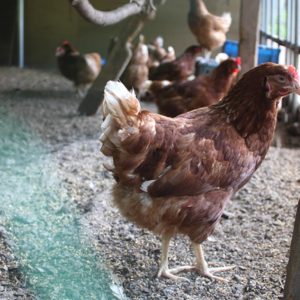
Cage rearing is being abolished all over the world, but Japan’s animal welfare is currently far behind.
A simple thing we can do to reduce the number of hens who continue getting exploited in their cages and go through life immobilized is for the consumers to stop buying cage-reared eggs and eliminate your egg consumption.
People who become aware of the actual situations and make humane and ethical choices today are what will lead to a sustainable future.
Click here for a list of other cage-free companies and shops


